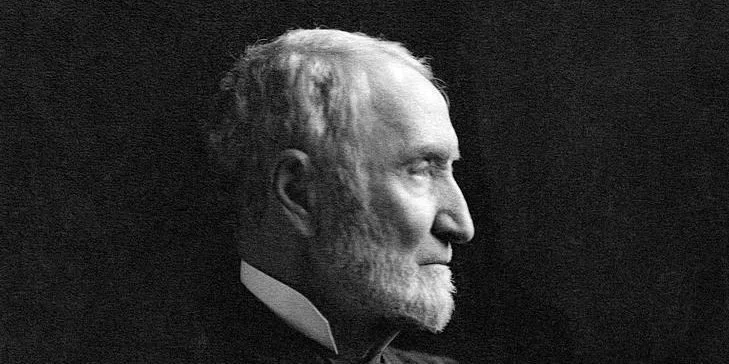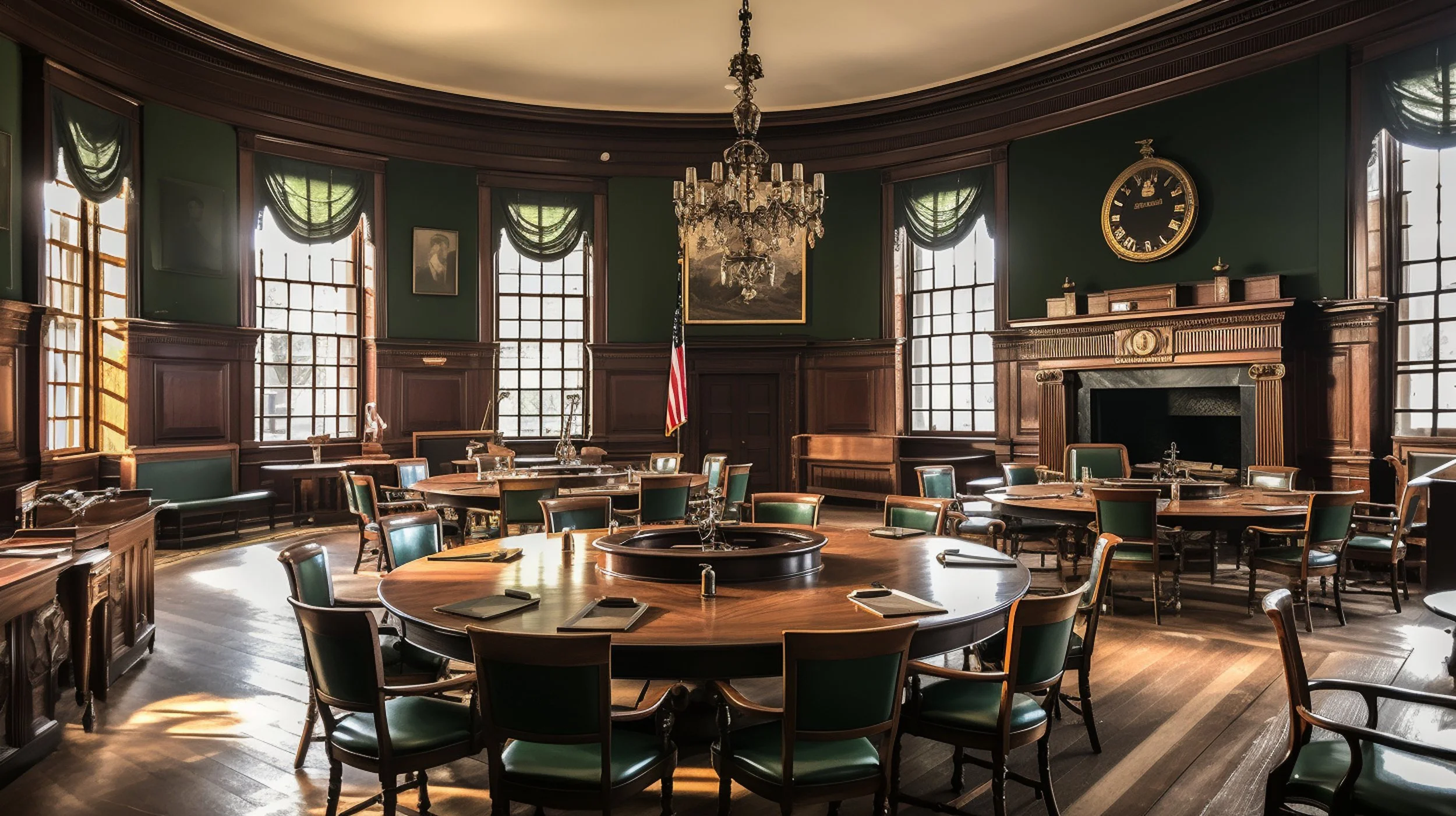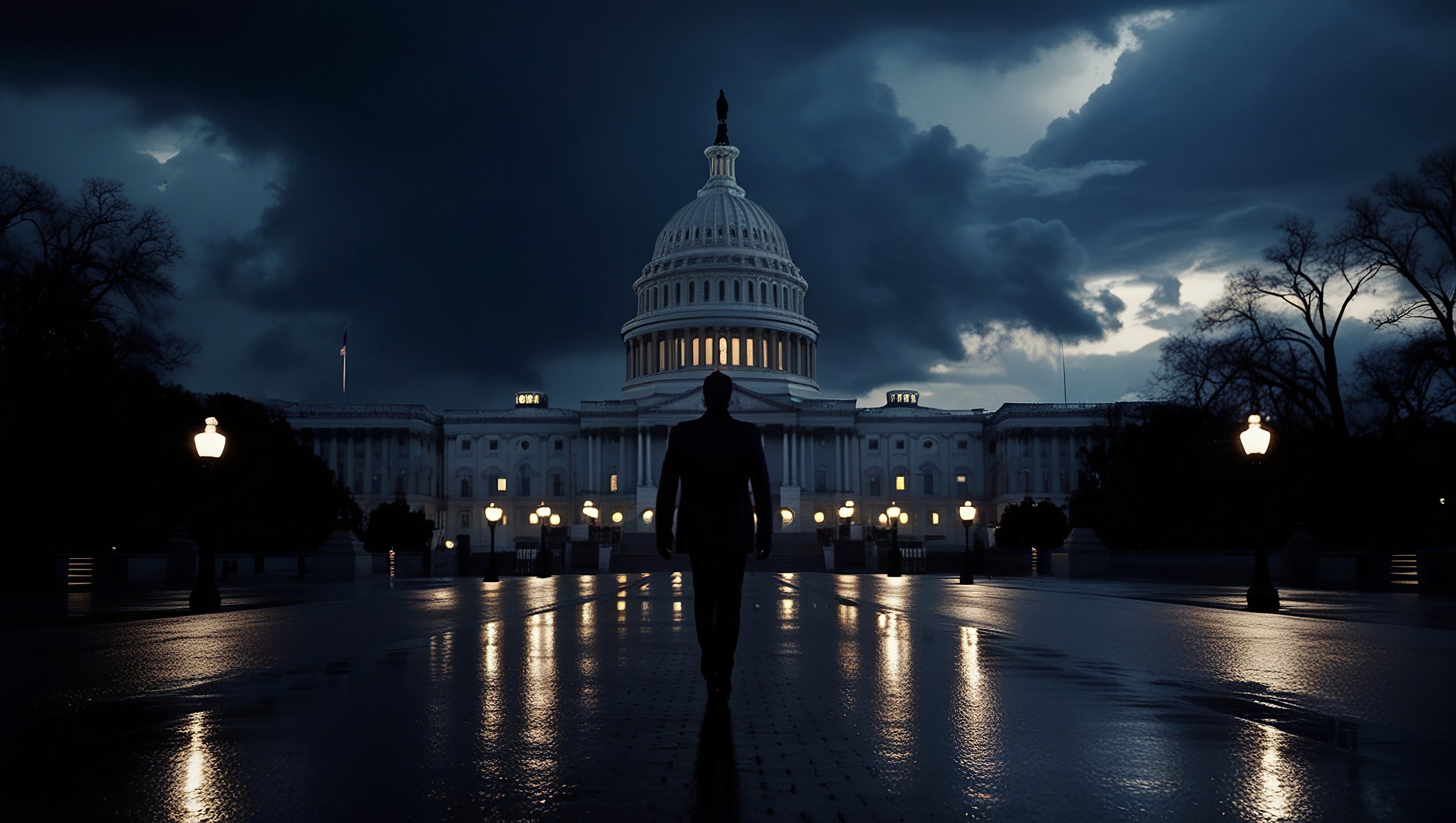Canons of Congress

By Team Thomas
Photo: Speaker Joe Cannon
Why a New Documentary Series on Congress May Be Just What America Needs…
“Congress is not the enemy of the people. It is the people’s branch. And yet, it has never felt more forgotten.”
So begins the planning for a new three-part documentary series called Canons of Congress, an ambitious civic education project designed to reclaim the story of America’s First Branch: the U.S. Congress.
Structured around 15 thematic “canons” that represent both the written and unwritten rules of power on Capitol Hill, the planned series will blend documentary filmmaking, historical storytelling, and insider insight to reveal how Congress works, and why it often doesn’t.
The Story Behind the Story
The project originates from Ben Everidge, our Editor-in-Chief at Thomas, a former staffer in both the U.S. House and Senate, who has spent over a decade working on more than 25 political campaigns. He earned his master’s degree in American government at Georgetown University, where he was named a University Fellow.
Drawing on that depth of institutional experience, Canons of Congress is part exposé, part civics class, and part call to action.
In a media landscape saturated with horse-race coverage, partisan bickering, and presidential pageantry, the goal of this series is refreshingly nonpartisan: to re-center Congress as the vital branch it was designed to be and to help Americans rediscover the values, virtues, and vulnerabilities of representative democracy.
The planned series, based on his forthcoming book, will unfold in three episodes, each approximately 45 minutes in length:
The First Branch Forgotten - A sweeping history of Congress’s original power and gradual decline in the age of executive dominance.
A Chamber in Crisis - How Congress has failed in its oversight duties and ceded authority to the presidency and the media age.
The Road Back to Relevance - A hopeful, solutions-oriented roadmap for restoring trust and functionality in the legislative branch.
Each episode will combine interviews with historians, Members of Congress, former staffers, journalists, reformers, and students. Archival footage from C-SPAN, PBS, the National Archives, and historic news broadcasts will help situate the viewer in the drama and decay of Congress throughout the decades, from Watergate to the Trump impeachment proceedings, and beyond.
A THOMAS SIDEBAR
The Forgotten Powers of Congress
What They Are, How They Work, and Why They Still Matter
Congress isn't just a place for political theater. It holds specific, constitutional powers designed to protect democracy and serve the people. Yet many of these powers have been neglected or diminished. Here are a few that every American voter should understand:
1. The Power of the Purse - Congress alone controls federal spending and taxation. When it defers this power, the balance of power collapses.
2. The Power to Declare War - Only Congress can authorize military force. Its abdication has led to endless wars without debate.
3. The Power of Oversight - Hearings, subpoenas, and investigations ensure accountability but only when used vigorously and fairly.
4. The Power to Confirm - The Senate confirms judges and Cabinet officials, shaping government for decades. It's more than a partisan rite. It's a civic responsibility.
5. The Power to Make Its Own Rules - Congress can reform itself. Regular order, open debate, and ethics enforcement all begin here.
6. The Power to Represent - Members of Congress are the only federal officials elected to represent specific communities. They are supposed to be our megaphones, not muffled, not muted.
These powers aren’t symbolic. They are the backbone of how democracy functions. Reclaiming them is essential for America’s future.
Why It Matters to Voters
The stakes are more than symbolic.
At a time when trust in Congress has dropped to just 13% (according to Gallup), and over 40% of voters now identify as political independents, understanding how laws are made and why they are often not made is urgent.
Congress doesn’t just pass bills; it also holds hearings, shapes budgets, confirms judges, and declares war. However, in recent decades, it has abdicated many of these responsibilities to the executive branch, federal agencies, or the media echo chamber.
That dysfunction has left voters frustrated. However, too few understand how we arrived here or how to return. The Canons of Congress hopes to fill that gap, not with blame, but with insight.
The series will also explore themes rarely highlighted in mainstream media, including the rise of closed rules in the House, the collapse of regular order, the erosion of the committee system, and the vital role of independent voices within a two-party stranglehold.
There’s even an entire chapter and planned episode segment on how global perception of Congress shapes America’s standing abroad.
“When Congress is chaotic, markets move. Allies brace. Adversaries calculate,” notes one diplomat interviewed in the series.
Voters deserve to understand how congressional action, or inaction, reverberates beyond our borders.
Behind the Scenes: Production and Impact
The series is currently in fundraising and development. It will be pitched to national broadcasters, such as PBS, and streaming platforms like Peacock or Paramount+, with a companion audio version produced via Supercast. Major donors and grantmakers will have naming opportunities in the credits, and a civic education rollout is planned for schools, community centers, and public libraries nationwide.
Curricular materials will accompany the series, providing AP Government teachers and civic educators with the tools to bring the Canons of Congress into the classroom. Civic partners, including iCivics, the League of Women Voters, and the National History Day program, will be invited to participate in the outreach phase.
“We want to rebuild civic memory,” Everidge says. “Congress isn’t just broken. It’s misunderstood. And we can’t fix what we’ve forgotten how to use.”
A Mediazine for the Moment
At Thomas, we’re a part of this important project. In an age when Americans are increasingly skeptical of institutions, sometimes with good reason, it’s tempting to throw up our hands and walk away from Congress. But that’s a mistake.
For all its faults, Congress remains the only place in the federal government where every American is directly represented. It is also the only branch that can fundamentally change itself through rules, leadership, and public pressure.
That’s the promise of the Canons of Congress. Not that it will fix everything, but that it might remind us why it matters.
In a nation of 330 million people, where power can feel distant and voices can feel unheard, this documentary dares to ask a simple, powerful question:
What would happen if we took Congress seriously again?
It’s time we found out.




